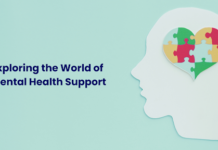Gastroesophageal reflux disease (GERD) is a chronic condition that affects the digestive system, causing discomfort and potentially leading to complications if left untreated. Characterized by the regurgitation of stomach acid into the esophagus, GERD can cause symptoms such as heartburn, chest pain, and difficulty swallowing. While there is no definitive cure for GERD, adopting certain lifestyle changes and seeking appropriate medical treatment can help manage the condition effectively and minimize its impact on daily life. In this article, we will explore how to cure gerd permanently using various strategies and approaches that can potentially provide long-term relief from GERD symptoms and improve overall quality of life.
What is GERD?
Gastroesophageal reflux disease (GERD) is characterized by the recurrent backward flow of stomach acid into the esophagus, the tube connecting the mouth and stomach.
What are 4 symptoms of GERD?
Symptoms of GER and GERD:
- chest pain.
- nausea.
- problems swallowing or pain while swallowing.
- Signs of complications in the mouth, throat, or lungs, such as persistent cough or voice changes (hoarseness).
What is the main cause for GERD?
GERD occurs when there is frequent reflux of stomach acid or non-acidic substances from the stomach. When you swallow, a circular band of muscle around the bottom of your oesophagus (lower e犀利士
sophageal sphincter) relaxes to allow food and liquid to flow into your stomach. Then the sphincter closes again.
How can GERD be cured naturally?
Best 6 home remedies for Gerd Cure
- Maintain a food diary to track your eating habits and identify trigger foods that can exacerbate GERD symptoms.
- Avoid the temptation to overeat or consume meals rapidly to help manage GERD symptoms.
- To manage GERD, avoid late meals, bedtime snacks, and eating before exercising.
- Eat alkaline foods, like a ripe banana.
- Wear loose-fitting clothing.
- Adjust your sleep position.
When to see a doctor?
If you are experiencing chest pain, particularly accompanied by shortness of breath, jaw pain, or arm pain, it is crucial to seek immediate medical attention as these symptoms could indicate a heart attack.
Schedule a consultation with your doctor in the following situations:
- If you frequently or severely experience symptoms of GERD.
- If you find yourself using over-the-counter medications for heartburn more than twice a week.
Treatments for GERD
In the treatment of GERD, your doctor may prescribe one or multiple medications to address the condition effectively.
- Antacids.
- Proton pump inhibitors (PPIs).
- H2 blockers.
- Bariatric surgery.
- Fundoplication.
- Endoscopy.
- Other medicines.
Conclusion
In conclusion, how to cure gerd permanently (Gastroesophageal Reflux Disease) can be challenging due to its chronic nature. However, effective management strategies can significantly alleviate symptoms and improve quality of life. Lifestyle modifications, such as maintaining a healthy weight, avoiding trigger foods, and eating smaller, more frequent meals, can help reduce the frequency and severity of acid reflux.
Elevating the head of the bed during sleep and refraining from lying down after meals can also aid in symptom control. Medical interventions, including over-the-counter antacids or prescription medications like proton pump inhibitors (PPIs), can effectively manage acid production and provide relief. In severe cases, surgical options may be considered.
While complete permanent eradication of GERD might not always be achievable, individuals can successfully manage and control their symptoms by combining medical advice with appropriate lifestyle adjustments. Regular communication with healthcare professionals and a proactive approach to managing GERD can lead to improved comfort and overall well-being.
FAQ
Q1: What causes GERD?
ANS: Factors such as obesity, diet, and certain medications can contribute to GERD.
Q2: How is GERD diagnosed?
ANS: Diagnosis of GERD is often based on symptoms, medical history, and sometimes tests like endoscopy.
Q3: Can GERD be cured?
ANS: While GERD cannot be completely cured, it can be managed through lifestyle changes and medications.
Q4: What are the complications of untreated GERD?
ANS: Untreated GERD can lead to esophagitis, esophageal strictures, and even an increased risk of esophageal cancer.










